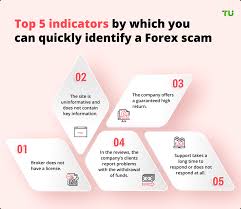What Should I Do When I Find Out My Forex Broker Fraud, Discovering that your forex broker is engaging in fraudulent activity can be alarming and potentially devastating, especially if you’ve invested a significant amount of money. Unfortunately, forex trading is an industry where scams and fraud still occur, so it’s crucial to know how to protect yourself and respond effectively if you fall victim to such misconduct. Here’s a step-by-step guide on what you should do if you suspect or confirm that your forex broker is fraudulent.
1. Stop Trading and Withdraw Your Funds Immediately
The first and most critical step is to halt all trading activities. Fraudulent brokers may try to manipulate the situation by encouraging you to keep trading to “recover losses” or by giving fake assurances. Don’t fall for these tactics. Instead, request the immediate withdrawal of your funds. This might be challenging if the broker is indeed fraudulent, but it’s important to try.
- Check the broker’s website or platform for withdrawal options.
- Submit a formal withdrawal request in writing or through the platform.
- Take screenshots of all communication and transaction attempts.
2. Gather Evidence of Fraud
If you believe your forex broker is committing fraud, start gathering all possible evidence to substantiate your claim. This includes:
- Emails and communication logs: Save all emails, chats, and phone call logs between you and the broker. These can serve as evidence in case of legal action.
- Transaction records: Document every deposit, trade, and withdrawal attempt. Include transaction IDs and screenshots where applicable.
- Broker’s actions: Make note of any suspicious behavior such as unfulfilled withdrawal requests, manipulated charts, or unauthorized trades.
Having a thorough record will strengthen your case if you need to escalate the matter to authorities or take legal action.
3. Check for Regulatory Status
Forex brokers are typically required to be regulated by a financial authority, depending on their jurisdiction. Fraudulent brokers often operate without proper regulation or falsely claim to be regulated. Here’s what you should do:
- Verify their regulation: Use the broker’s license number (if provided) and check with the appropriate financial authority. Regulatory bodies like the Financial Conduct Authority (FCA) in the UK, the U.S. Commodity Futures Trading Commission (CFTC), and the Australian Securities and Investments Commission (ASIC) maintain public databases for verifying licenses.
- Report the fraud: If the broker claims to be regulated but you cannot verify it, report them to the regulatory authority in their jurisdiction. Many regulators take complaints seriously and may initiate investigations.
4. File a Complaint
After confirming the broker is fraudulent or engaging in misconduct, file a formal complaint. You can do this with several entities:
- Regulatory authorities: Submit your complaint to the relevant regulator. This might lead to an investigation and potential penalties for the broker.
- Consumer protection organizations: Reach out to financial ombudsman services or consumer protection agencies, especially if you’ve been targeted by a scam.
- Forex forums and reviews: Share your experience on reputable forex forums and review sites to warn others. Websites like Forex Peace Army and Trustpilot often feature reviews from victims of forex fraud.
5. Consider Legal Action
If the amount of money lost is significant, you may want to consider taking legal action against the broker. Depending on your location and the broker’s jurisdiction, there may be options for recovering your funds:
- Consult a lawyer: Speak to a legal expert with experience in financial fraud cases, especially forex scams.
- Class action lawsuits: In some cases, other victims may have faced the same issues, and a class action lawsuit could be an option.
- Arbitration: Some brokers operate under arbitration clauses that may allow you to seek resolution outside of traditional court proceedings.
6. Use Chargebacks or Recovery Services
If you made deposits through a credit or debit card, you may be able to recover your money through a chargeback. Most card companies have consumer protection policies that allow chargebacks in cases of fraud.
- Contact your bank or card issuer: Request a chargeback and explain that you were a victim of fraud.
- Recovery services: There are companies specializing in recovering funds from forex scams. While you need to be cautious (as some recovery services are fraudulent themselves), legitimate services can help trace and recover your lost money.
7. Educate Yourself for Future Protection
Falling victim to a forex scam can be a hard lesson, but it’s essential to learn from the experience and protect yourself in the future. Here are a few steps to prevent future issues:
- Due diligence: Always conduct thorough research on any broker before investing. Verify their regulatory status, check reviews, and look for any red flags such as unrealistic promises of high returns or aggressive sales tactics.
- Stay informed: Follow industry news and stay updated on common forex scams. Knowing the latest tactics scammers use can help you avoid falling victim again.
- Start small: When trying out a new broker, begin with a small amount of money to test their services, withdrawal processes, and customer support.
Conclusion
If you find out that your forex broker is a fraud, acting swiftly is critical. Withdraw your funds, gather evidence, and report the fraud to the appropriate authorities. Legal recourse, chargebacks, and recovery services may offer further avenues to recover lost money. Most importantly, take this as an opportunity to learn how to better protect yourself in the volatile world of forex trading.
By following these steps, you can take control of the situation, protect your assets, and potentially recover from the financial loss.
You Might Also Like These:
hipaa disaster recovery plan template

